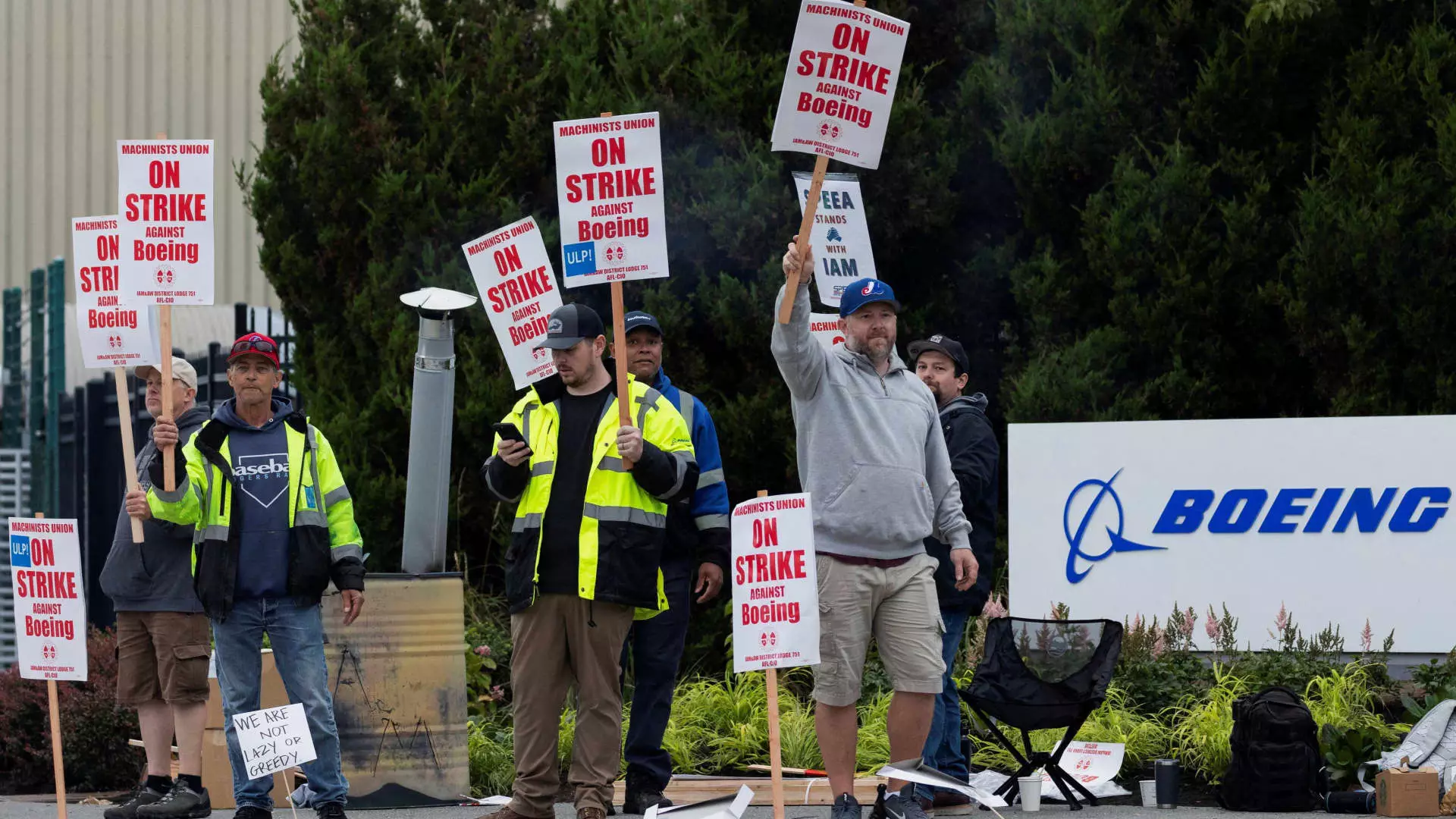In Washington State, a clash is unfolding between Boeing, a multinational aerospace giant, and the skilled machinists who produce its aircraft. As workers engage in a strike for better pay, the financial repercussions for Boeing escalate, adding complexity to an already tenuous economic situation. The ongoing strike, which began with more than 30,000 machinists walking off their jobs, represents a significant test for both corporate leadership and labor union solidarity. The negotiations have stalled amid disagreements over wage increases and working conditions, suggesting a potential impasse that could last longer, raising the stakes for both sides.
The machinists, represented by the International Association of Machinists and Aerospace Workers District 751, are seeking wage increases that reflect the rising cost of living, particularly in the Seattle area, where housing prices have soared significantly over the past decade. Despite the company’s latest proposal of a 25% wage increase over four years, workers are holding out for more, aiming for a 40% increase along with other long-term benefits that were lost in past negotiations.
The workers’ demands are not only a reflection of personal economic strains but also a response to broader economic trends that have squeezed the pockets of those living in the Seattle area. The substantial increase in the median home price—up 142% since 2013—has made homeownership an unattainable goal for many workers, adding urgency to their quest for fair compensation. This stark reality extends beyond just housing, as many machinists report difficulty in meeting everyday expenses, compelling them to seek additional income through side jobs in landscaping or food delivery.
One machinist voiced the challenge succinctly: “We can’t afford to own a home.” This profound statement highlights the disconnect between worker compensation and the escalating costs of living, fueling a climate ripe for contention. As workers contemplate supplemental work to sustain their livelihoods during the strike, the notion becomes clear: timely and fair wage increases are not just desirable but necessary for survival in a rapidly changing economic landscape.
Boeing’s Financial Strains and Corporate Reactions
The financial fallout for Boeing has also been profound, with estimates suggesting that the strike is costing the company approximately $50 million per day. Over the course of this year alone, Boeing has encountered severe financial challenges, racking up losses that now surpass $8 billion in the wake of previous manufacturing crises. With a staggering $60 billion in existing debt, the company is facing increased scrutiny from ratings agencies that warn of potential downgrades if negotiations fail to yield results soon.
Management, led by new CEO Kelly Ortberg, finds itself in a precarious position, attempting to stabilize the company while also addressing labor grievances. Temporary furloughs for tens of thousands of staff were announced in response to the ongoing crisis, signaling a deeply concerning trend for the workforce. Ortberg’s commitment to resolving the dispute through continued negotiations reflects a recognition of the stakes involved, as failure to address the workers’ concerns could lead to longer-term repercussions not only for production levels but also for company morale.
A Broader Context: Labor Struggles in Modern America
The Boeing strike is emblematic of a broader wave of labor movements gaining traction across various industries in the United States. From autoworkers to airline professionals, many labor groups are mobilizing to demand better working conditions and compensation. The built-up frustrations seen at Boeing are echoed in other sectors where employees are leveraging their collective strength to negotiate more favorable terms, particularly in a labor market now characterized by competition for skilled workers.
Trade unions have gained renewed visibility and traction, generating public sympathy and support from government leaders. Transportation Secretary Pete Buttigieg emphasized the importance of reaching a resolution that is fair for workers and sustainable for businesses, shining a light on the critical nature of these negotiations. The strike’s implications extend beyond Boeing, as it affects a network of suppliers and partners, emphasizing the interconnected nature of the aerospace industry.
As Boeing and its machinists head into uncharted territory, the potential for extended negotiations looms large. Both parties must confront not only their immediate demands but also the underlying economic and social factors driving this labor unrest. Ultimately, how Boeing navigates this crisis and whether compromises can be reached will be instrumental in determining its future stability and ability to retain its workforce. The impacts of this strike may ripple far beyond Renton, challenging norms and reshaping labor relations within the industry as a whole.
The Boeing strike highlights a crucial point in contemporary labor relations: as workers grapple with rising costs and management faces intensified economic pressures, the path forward will require a careful balance of negotiation and adaptation. The outcome remains uncertain, but the implications for employees, management, and the wider aerospace landscape could be profound.

